 Photos courtesy of Garrett King, Juan Veloz, and Samuel AlphonseSave this storySave this story
Photos courtesy of Garrett King, Juan Veloz, and Samuel AlphonseSave this storySave this story
When people talk about eczema, the first thing many of them mention is the unbearable itch—the hallmark symptom of this group of skin conditions. The next thing they might say is how common it is.
More than 31 million Americans have eczema, but Black people are disproportionately affected. In fact, one widely cited study found that Black kids were 1.7 times more likely to develop the condition than their white counterparts. Researchers believe this disparity may stem from a range of factors, including socioeconomic, environmental, and genetic circumstances. Eczema also presents differently on individuals with darker complexions than it does on lighter skin tones, which can lead to misdiagnosis or delayed diagnosis for people of color. For example, anyone with atopic dermatitis, the most common type of eczema, is likely to experience the condition’s telltale dry patches. However, the red discoloration found on lighter-skinned individuals often appears as brown, purple, or gray on people with more melanin. That can make it more difficult to get the condition recognized and treated early, exacerbating symptoms, including itchiness. Not only is this uncomfortable, but compulsive scratching can break down the skin barrier and cause abrasions, increasing the risk of serious infections such as staph and sepsis.
The condition can also take a profound toll on mental health and self-image. Research has found that people with the condition have an increased risk of depression and anxiety. Many adults report having avoided social interaction because of their eczema, while some studies suggest that the condition can have negative impacts on a person’s sex life. To make matters worse, so many of those suffering do so in silence.
To give voice to the lived experiences of Black women with these conditions, Allure spoke to several individuals with eczema. Here is how this diagnosis has—and hasn’t—impacted the way they live their lives, navigate the world, and advocate for both themselves and others.
Darchelle Burnett, 26
Bothell, Washington
Photo courtesy of Garrett King
Most people do their skin routine and move on with their day. But I have a skin routine I have to do all day long. When I’m working on Zoom as a DEI specialist, I have a slew of products in my drawer to help me feel better, like Vaseline balm sticks, sanitizing wipes, and hand cream. My flares are primarily on the right side of my face, so if it’s happening, any time I open my mouth to smile, everything hurts. With eczema you have what I call “visible mental health.” People can just look at you and tell if you’re having an off day. Your skin reflects everything that’s going on with you.
I used to live with the mindset that “when my skin is healed, I’ll be pretty and confident and accepted.” Then my skin would heal, and I’d feel good. But then, a month later, I’d have a flare and feel bad. I realized I needed to change the narrative around what being beautifully diverse looks like. Instead of waiting I started to ask myself, “How can you feel beautiful at any point in time?” We all have scars. It’s just how you showcase those scars that shows your self-confidence and impacts how you walk through the world.
Over the years I’ve tried topical and oral steroids as well as over-the-counter products. But it wasn’t until I experienced phototherapy that things changed for me. I stopped all other prescriptions, and now I just use an at-home machine prescribed by my doctor. It delivers UV light, which helps suppress overactive immune cells, warding off flares and easing my symptoms when they crop up. It’s also helped improve my hyperpigmentation, so I’m so thankful my insurance covers it. That and regular skin care is all I need.
Amanda Nicholas, 33
Pompano Beach, Florida
Photo courtesy of Amanda Nichola
Ten years ago I was driving down the Sawgrass Expressway in Florida when, out of nowhere, an uncontrollable itching took over my entire body. I had to grip the steering wheel as I floored it home, where I lived with my mother and grandmother. I opened the front door of the house and collapsed onto the floor. That had never happened before. I had had eczema flares in the crook of my elbows or the back of my knees as a child, but they mostly disappeared when I started high school. That day it came back with a vengeance. Over the next few weeks, my skin flared from my scalp to my feet. My family tried everything from bleach baths and coconut oil to freezing towels and draping them over me to ease the itch.
After seeing a doctor I was diagnosed with severe atopic dermatitis, the most common type of eczema, and put on a course of both topical and oral steroids. This helped—until I completed the prescribed regimen; then the eczema would come right back. I’d start another course, and the same thing would happen when it ended. I went through this cycle for years until the steroids stopped working to clear up my skin. I chased a clear complexion for years, trying everything—including a clinical trial for a new drug and stopping steroids entirely, the latter of which sometimes left me bedridden for weeks. It wasn’t until after I gave birth to my son and had consistent access to affordable health care that I started a biologic treatment. This injectable medication suppresses your immune response to reduce inflammation, which has helped improve many of my symptoms. I couldn’t nurse this condition and take care of a baby and get to work without being on a biologic. It makes life manageable.
If there’s one thing I’d tell other women, it’s to not only advocate for yourself with doctors, but also with insurance companies and drug manufacturers. At one point my insurance stopped covering my biologic, but I was able to get compassionate-care doses by contacting the drug company directly. Advocate for yourself because you’re worth it.
Chi Villines, 35
Fort Lauderdale, Florida
Photo courtesy of Samuel Alphonse
Today I get compliments on my skin from strangers while I’m walking down the street. But they have no idea what it was like for me as a child who struggled with eczema. I used to ask myself, “Why is this happening to me? What did I do? Why am I being punished?” I’ve had eczema since I was a baby and took topical steroids for over two decades because it was so severe. I remember once, in fifth grade, I was sitting at my desk trying to focus, but the itching was too much. I was just clawing at my skin, watching the flakes fall off, and feeling the blisters start to ooze. All of a sudden my teacher came over, slapped my desk, and told me to stop. I broke down crying.
One of the hardest parts of eczema is its chronic nature. Treatments never cured me; they just masked symptoms for a while. It wasn’t until six years ago, when I was living in Bangkok as a professional dancer, that I decided to try a more holistic approach. When you’re a child, your parents follow what the doctors say. But as an adult I was able to take matters into my own hands, listen to my body, and find a better solution than topicals. I tried holistic approaches that were easier to access abroad, like working with an herbalist, changing my diet, and focusing on avoiding triggers like stress. My skin has never been better. If you’re still struggling, don’t hide or make yourself invisible. It’s so important to live out loud, even when you have eczema.
Turquoise Peart, 35
Chicago, Illinois
Photo courtesy of Turquoise Peart
When I was 14, I did the “big chop” and started wearing a super-short Afro before it was trendy. I had to. I was losing my hair because I couldn’t stop scratching my head. My mother owned her own hair salon, and I remember people asking her, “Can’t you fix it? You’re a hair magician.” But she couldn’t because I had a medical problem. It would take visits to three different health care practitioners before I got accurately diagnosed with seborrheic dermatitis, which is eczema [that usually impacts] the scalp. The last practitioner, who was a woman of color, made me promise to follow her scalp regimen exactly, which I did. After a few months my scalp stopped flaking all over my sheets and started to clear up.
While I was healing, I was determined to break myself out of the itch-scratch cycle of eczema. The itching makes you scratch, but the scratching leads to more inflammation and itching, which leads to scratching and…you get it. At that point I couldn’t tell if I was scratching out of habit or because I had to. It’s such a weird phenomenon, and I wanted it to stop. So any time I felt the urge to scratch, I would sit on my hands. I cut my nails short so that if I did scratch while sleeping, I couldn’t do it to the point of bleeding. After a few months I trained myself to stop.
Since then I’ve had minor flare-ups across my body. And once I get a flare, it’s very challenging for it to go away. So I do everything possible to avoid them. During the COVID-19 lockdown I changed my lifestyle habits to try to beat eczema. I gave up eating meat and avoided pre-packaged foods. My skin instantly got better. There’s a glow to it now that wasn’t there before. I’ve also learned how to avoid other triggers for my skin, like sweat. I keep my house at a cool temperature, and I walk a lot instead of doing high-intensity workouts at the gym. Also, when I travel I protect my skin from potential irritants, like other people’s lotions and perfumes and hotel laundry detergents. I wear long pants and a hoodie, and I bring my own bedding to hotels to keep my skin from touching public surfaces I might react to.
I wouldn’t be where I am now if I hadn’t found the physician who helped me all those years ago. I’d tell other women with eczema to keep searching for the right practitioner. It’s almost like looking for a therapist. And when you’re speaking with medical professionals, don’t lose your voice or be afraid to ask questions. It’s your body, and it’s your right.
Monica Veloz, 33
Los Angeles, California
Photo courtesy of Juan Veloz
My earliest memory of having eczema is a really insane flare-up that I had freshman year of high school. My mom told me that when I was born, my skin was super dry, and I’ve always had sensitive skin. But something happened when I became a teenager. I could see patches on the top of my lip, the crevice of my elbow, the backs of my knees—anywhere you could sweat. And there were places where it was oozing. Eczema is the whole reason I developed a love for makeup and ultimately became a beauty influencer as an adult. I don’t even know if I was picking out the right shades. I was just so focused on covering my flaky, uncomfortable skin.
I don’t remember getting prescription medication for my eczema, but I would take oatmeal baths, and I would moisturize all the time with lotions and products we’d get from our trips back to the Dominican Republic, where my family is originally from. I also stayed away from scented detergents. I’m thankful these lifestyle changes worked. I haven’t had a significant flare-up in the past six years. I’ll sometimes see dry patches in the corner of my hand or something if I forget to hydrate. My skin- and body-care routine can’t miss a beat. But it’s nothing that requires me to see a dermatologist or take medication.
The most important thing that I’ve learned is that everyone wants to see overnight success with their skin. It’s rarely that way. Be patient and keep searching for answers. This isn’t a linear journey, but in time you’ll find what’s best for your skin.
Interviews have been edited and condensed for clarity.

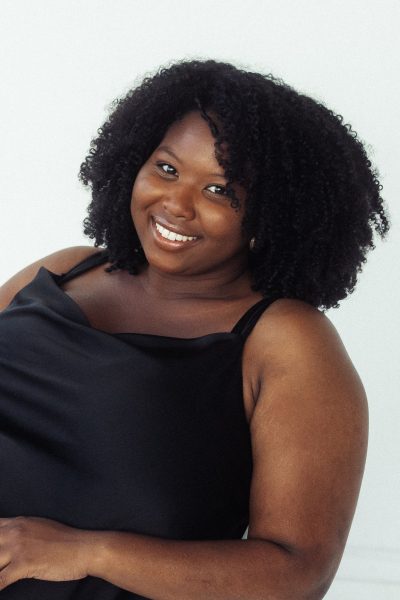
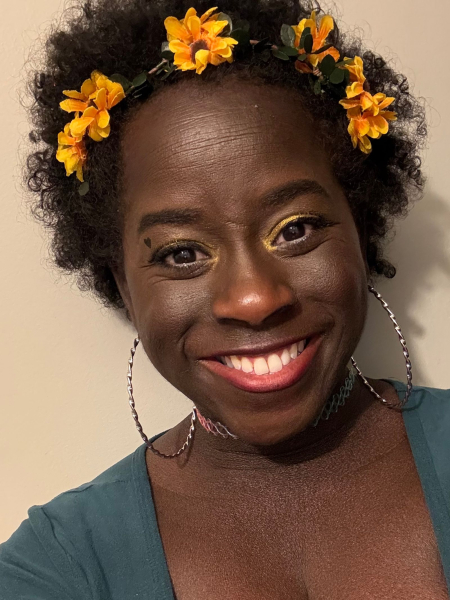
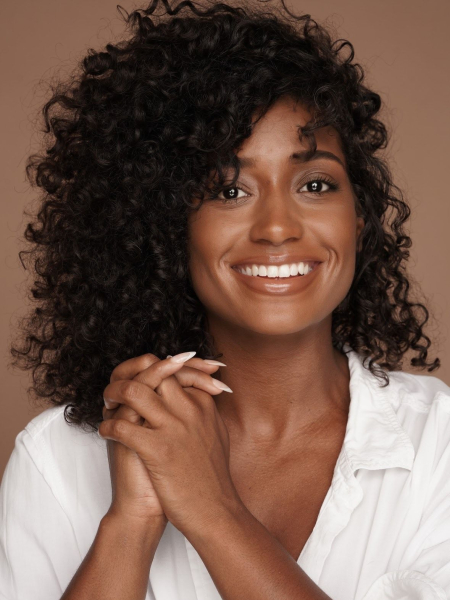
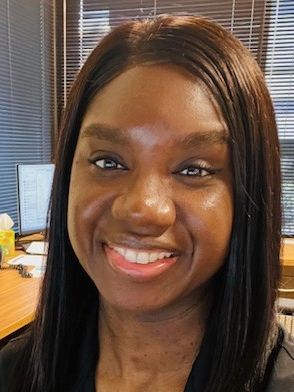
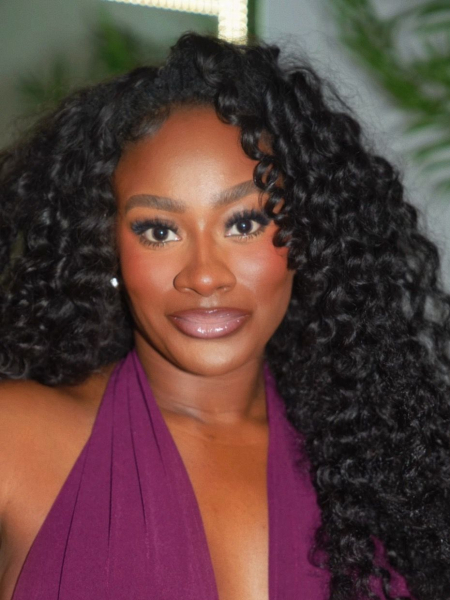
Leave a Reply